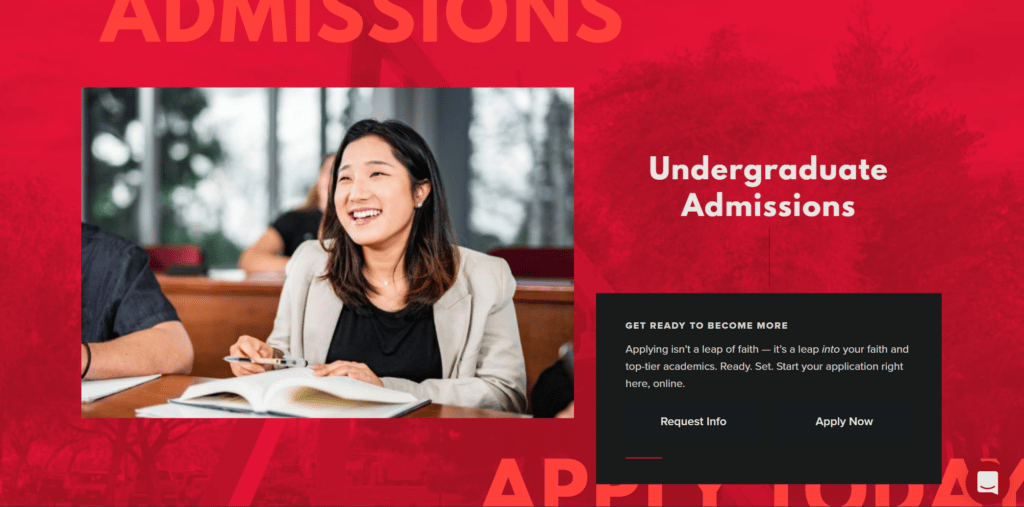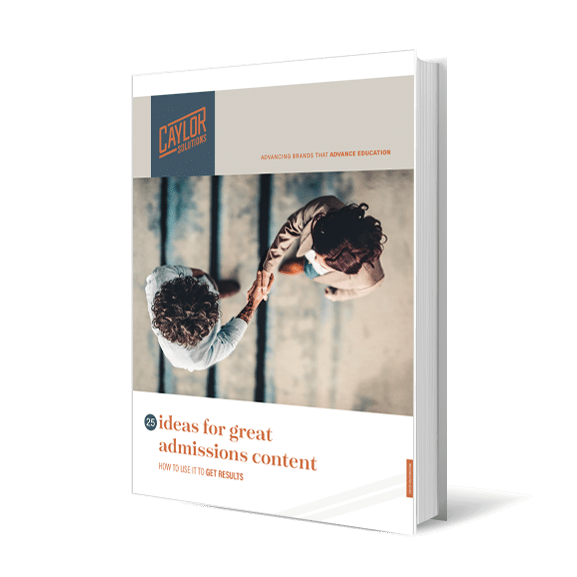Crisis Communication in Higher Ed: Pepperdine’s Wildfire Response
See how Pepperdine University redefined crisis communication in higher ed by prioritizing safety, faith, and storytelling during the California wildfires.
Marketing Strategies
Influencer marketing is a powerful tool to help cultivate new prospective students that too often gets neglected. But the whole idea of influencer marketing is a really important aspect of the higher ed marketer’s toolbox that needs to be leveraged.
Whether you’re talking about social media or alumni influencers or peer-to-peer type of communications, we too often forget about it.
Instead, we get so focused on viewbooks, travel pieces, websites and social media.
Now, all of those are important!
But, unfortunately, we can miss some of the more specialized tools that can really make a big difference when we become too myopic.

In this conversation on The Higher Ed Marketer podcast, Lee Wilhite, Vice President at Biola University, discusses how the institution approaches influencer marketing and the platforms they use to do it.
If you’ve been in marketing for any length of time, I’m sure you’ve noticed a sharp difference in the way prospective students react to corporate brands, including education brands.
Towards the beginning of our conversation, Lee points out this shift.
We have learned over the years how upcoming generations look at corporate brands, university brands, and some of the institutional kind of messaging out there, [has changed].
Especially in the younger generations, they’re looking for more peer input. [Just look at] our shopping habits. We go to Amazon, and we look at those customer reviews. We’re trying to see more of a first-person kind of assessment of how people are experiencing a product or service.
And we just saw an opportunity years ago [to launch] a student-to-student communication stream.
Part of that student-to-student communication stream involved finding young alumni who could collaborate with Biola in a series of online videos.
One successful video series was with Biola alumnus Zach King, an Internet influencer who happens to have 13 million YouTube subscribers.
When Biola collaborates with content creators like Zach, they’re able to leverage the amount of trust their peers have in their advice, experiences, and opinions.
It’s natural for a prospective student to have a higher trust level when they receive your message from someone they already listen to.
With influencer marketing, you’re tapping into the voices that your target audience is already tuned into.
This way, you’re able to make the messaging more natural and less like an interruption.
It’s that peer-to-peer reflection, the firsthand account of their experience at Biola. The trust level is higher. Somehow, it cuts through some of the corporate speak or university speak, if you will. It really does connect to people on a more peer level, and I think that’s a more trusted relationship.
Like most institutions, Biola wasn’t leveraging an influencer marketing strategy at first.
But once they saw the potential, they launched it one step at a time.
In 2017, we started what we call our student influencer program. We went out and scoured some of the social media platforms, following some of our enrolled students here at Biola. Many of them have thousands and thousands of followers for different reasons. They’ve kind of built their own communities.
And we thought, “Hey, wouldn’t this be a great opportunity to leverage and utilize some of these students who have a passion for Biola, but also have a passion for some of the very things that they’re about as well?”
So, we put some criteria to the table. We wanted to have some students that had at least a few thousand followers they had [accumulated]. That was important. Also, we wanted to make sure they had a positive reputation that aligned closely with our value system.
Of course, we want that missional alignment as much as possible. That’s important! Especially if they’re advocating on your behalf.
We looked for students that were advocating for diversity and inclusion and wanting to make sure that they had a broad reach in terms of their influence. [Lastly, we wanted them to be] involved in the Biola culture and in all that we were bringing.
Soon, we found some student influencers that fit the bill. We reached out to them and talked to them about this idea. They loved it!
These students were given the opportunity to step into a kind of relationship with Biola to help us with some of our marketing. But we allowed them to do it within the context of what they had built within their own followers. And I think that was the key.
There is so much here to learn from!
Let’s distill some of the key points of this process.

Source: Biola.edu
Be careful not to force the influencer into your brand image.
If you do that, you’ll lose the advantage of having the influencer advocating for your brand.
The power of influencer marketing is in authenticity – first-hand accounts from influencers your audience trusts.
I encourage you to use the same process that Biola did to start your own student influencer program!
You’ll be amazed at how many influencers you have within your school’s orbit who’ll be more than glad to help you with your enrollment marketing.
Like all of our blog post reviews of The Higher Ed Marketer podcasts, there’s so much more to learn in the podcasts themselves.
Listen to our interview with Lee Wilhite to get even more insights into:
You’re in luck! We’ve curated 25 awesome ideas inspired by top higher ed institutions across the country and put them in one handy guide: 25 Ideas for Great Admissions Content.

Get inspired.
Get enrollment results.
Get 25 Ideas for Great Admissions Content.
Download your copy today!
Featured image via biola.edu
Subscribe to The Higher Ed Marketer podcast today!